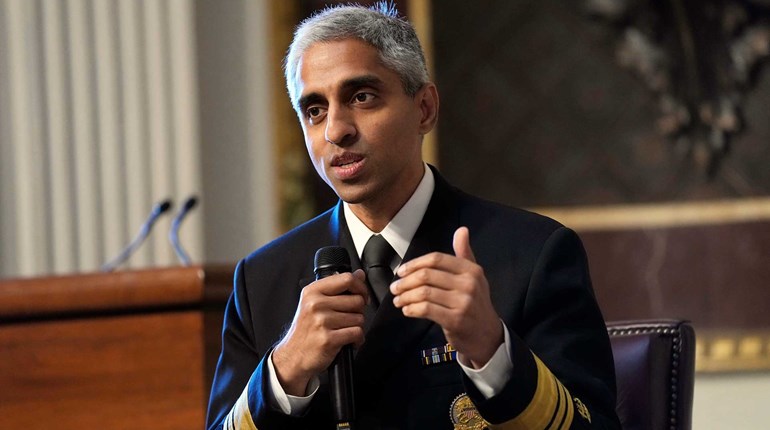
Ninety-six years ago last week, a convoluted congressional and constitutional misadventure of major proportions began an interesting period in American history. Commonly known as “Prohibition,” the Volstead Act was named for its senatorial sponsor (Andrew Volstead of Minnesota), and gave legal teeth to the 18th Amendment.

As a historical matter, attempts at drying out the United States had been a century or more in coming. Formalized in organizations like the Women’s Christian Temperance Union (1873) and the Anti-Saloon League (1893), it appeared supporters of Prohibition had achieved their aim when President Woodrow Wilson’s veto of the Act was overridden and became law on Oct. 28, 1919.
Both the amendment and the act were peculiar in one particularly obvious and little-known respect: Neither actually prohibited the consumption of “intoxicating beverages.” Rather, their manufacture, sale or transportation beyond the very narrow terms defined by the Act was proscribed. Lawful uses remained for scientific, medicinal, religious and industrial purposes.
It took all of 59 minutes for the first documented violation to occur ($100,000 worth of “medicinal” whiskey was stolen from—perhaps you guessed it—a Chicago freight yard). The rest, as the saying goes, is history.
As with virtually any unpopular prohibition, a vigorous, widespread, organized—and hugely profitable—black market appeared almost instantly. That was illustrated most famously by transplanted New Yorker Alphonse Gabriel “Al” Capone, but Chicago was by no means the only American city where the speakeasy flourished. A hyper-energized, criminalized and profitable black market in firearms will appear, with consequences only to be guessed.
Other elaborate workarounds of Volstead Act provisions were ubiquitous. Fake “prescriptions,” home fermentation and elaborate illegal importation were just the beginning. Long Island rumrunner Bill McCoy’s success gave rise to the expression “The real McCoy,” and Enoch “Nucky” Johnson ran his own bootlegging empire in Atlantic City, N.J. Even by flamboyant Roaring ’20s standards, the revenue streams were impressive. Capone’s combined operations were estimated to generate $100 million per year.
Widespread violence over sales territories followed the massive money. Capone himself is believed to have killed at least four people, and ordered the killings of more than 30 others. His attempt on rival “Bugs” Moran became the infamous St. Valentine’s Day Massacre. Capone henchman “Machine Gun” Jack McGurn’s men were disguised as policemen when they missed Moran. But they killed seven others in spectacularly cold blood in a north side Chicago garage on Feb. 14, 1929.
Famed Treasury Agent Eliot Ness and his small team of “Untouchables” harassed Capone’s operations throughout the late ’20s. “Scarface” eventually went to prison for tax evasion (though not for a single Volstead violation—he faced 5,000—or any other crime).
But even by 1926, pervasive negative consequences were leading to widespread disenchantment with the “Noble Experiment” of the Volstead Act and the 18th Amendment. In the 1932 presidential election, challenger Franklin Roosevelt ran on a platform that included the repeal of the 18th, and defeated incumbent Herbert Hoover (though Hoover was at best lukewarm in his support of Volstead, and often visited the “foreign soil” of the Belgian Embassy to enjoy a drink when he served as Secretary of Commerce). By December 1933, President Roosevelt had his repeal in the form of the 21st Amendment.
The Prohibition experience offers many cautions for the present day, and for law enforcement in particular. While teamwork between agencies eventually brought down gangsters like Capone, it was not without cost: Public confidence in the rule of law and law enforcement personnel were badly shaken. Chicago Chief of Police Charles C. Fitzmorris observed of the Prohibition Era: “Sixty percent of my (force) were in the bootleg business.” If bribery or other compulsions could not be brought to bear, murder was acceptable (as in the case of Illinois State Prosecutor William McSwiggin, killed in April 1926).
Perhaps more worrisome was the durability of the criminal mindset and enterprises it spawned. Organized crime in the sense we think of it today first came into being with Prohibition, a vice-fueled juggernaut that endured long beyond Capone. His lieutenants were still supreme in the Chicago underworld until at least the late 1950s (according to the FBI), and their successors apparently to the present day. Another manifestation of their ideological durability can be observed in modern drug cartels. The apparently insatiable appetite for violence to acquire turf and earning power can be traced to the gangsters of the Prohibition Era, with their capricious, violent will applied through billions—no longer mere millions—of dollars.Though it happened nearly a hundred years ago, evidence of the overwhelmingly negative effects remain for those with eyes to see. The “cure” was in fact much worse than the disease.
An understanding of the relationship between prohibitions and black markets is a final, crucial takeaway. There are clear indications that ever more aggressive attacks on firearms ownership will continue, and likely escalate. This is particularly so in the current presidential election cycle. The goal, simply, is analogous to that of the 18th Amendment: Since a small minority of drinkers could not, would not and did not control their use/abuse of alcoholic beverages, an intervention was, some believed, warranted.
The Volstead Act was the result. Though it happened nearly a hundred years ago, evidence of the overwhelmingly negative effects remain for those with eyes to see. The “cure” was in fact much worse than the disease.
Virtually any of our liberties can die in this way: Extrapolation from a small but over-reported and over-reacted-to set of misbehaviors creates über-emotion—“We must do something!” But to assume that the unintended consequences of substantially curtailing the Second Amendment won’t prove as damaging as the Volstead Act was in 1919 is nonsensical. A hyper-energized, criminalized and profitable black market in firearms would certainly appear, with consequences only to be guessed.
Like Prohibition, virtually all will be unwelcome.
As a law-abiding citizen, soldier or law enforcement officer, the only difference will be your own disarmed, defenseless state, or that of those you love.


































